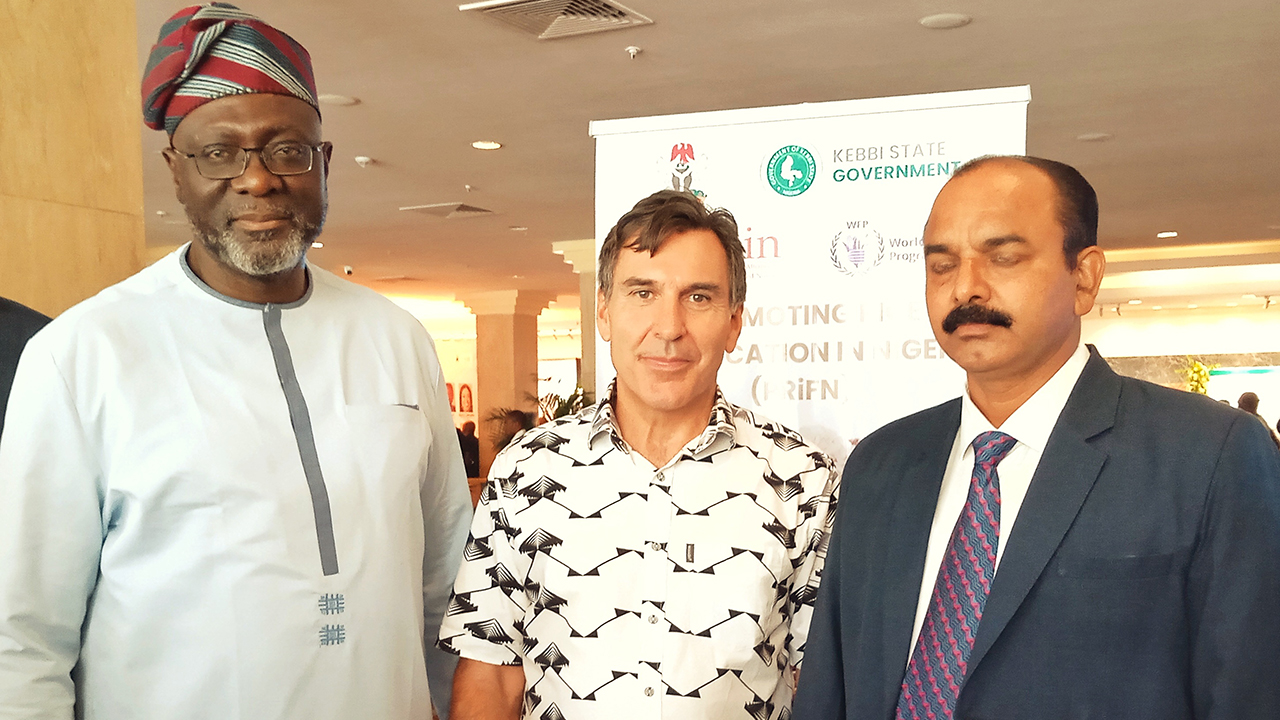
Global Alliance for Improved Nutrition, (GAIN), and other stakeholders have tasked the federal government to introduce the newly launched micronutrients fortified rice in its Home-Grown School feeding programme to tackle cases of malnutrition.
At an event launching the micronutrients fortified rice yesterday in Abuja, yesterday Country Director, GAIN, Dr. Michael Ojo, said Nigeria’s malnutrition is alarming at the moment and there and there is evidence that this may worsen and children are behind the statistic suffering the negative impact of the lack of micronutrients leading to malnutrition hence their introduction into the school feeding programmes is of health immense benefit.
He said “WE are fortifying rice with four nutrients, zinc, Iron, Folic acid and vitamin B12. These are micronutrients that are not sufficiently available in the food that we consume but are critical, really crucial to health and well being.
For example, Folic Acid is critical to the body’s production of red blood cells. We see a lot of anemia and anemia means that people don’t have enough red blood cells and it limits their ability to perform every day.
“We see very high rates in women, in children especially women who are going through their periods and losing blood for that reason so it is very important in our diet. This is the same work that is done by iron; some of the anemia is down to iron deficiency.”
“Nigeria has one of the largest Home-Grown School Feeding programme in Africa, one that can be improved and it targets up to ten million children,’ observed David Stevenson, Country Representative of the United Nations World Food Programme.
Stevenson said “The idea is to fortify rice and then provide it to the school children as part of the home-grown school feeding programme being implemented by the federal ministry of Humanitarian Affairs and Poverty Alleviation. These ten million children will be reached everyday when the programme runs full speed and we at the world food programme are really appreciative of the partnership and we feel that fortification is essential so that children can reach their full potential.”
“According to the World Bank, Nigeria loses an estimated 1.5 billion dollars to of Gross Domestic Product, (GDP), annually due to micronutrient deficiencies.
“I want to commend the leadership Innovative mindset of the Kebbi State government for agreeing to introduce fortified rice into the school feeding programme thus providing a platform to reach vulnerable children and young girls.
Speaking on the partnership that supports the fortification process, representative of WACOT Nigeria limited, Neera Kumar, said WACOT is piloting the fortification project in Kebbi state and has gained confidence of stakeholders in its technical capabilities
He said the newly launched fortified rice is not more expensive than regular rice because the cost implication is very minimal, almost absent. “It is one percent of blending only so it will not impact on the cost. It contains Iron, Zinc, vitamin B1, B3, B6, and B12.”
Kebbi state governor, Mohammed Idris, represented by his deputy, Umar Abubakar, said the state will continue to partner with key stakeholders in the fortification value chain to continue to add value to rice production though micronutrients fortification. There is a lot of wins there in terms local production economic development as well as the consumption of nutritious food.






